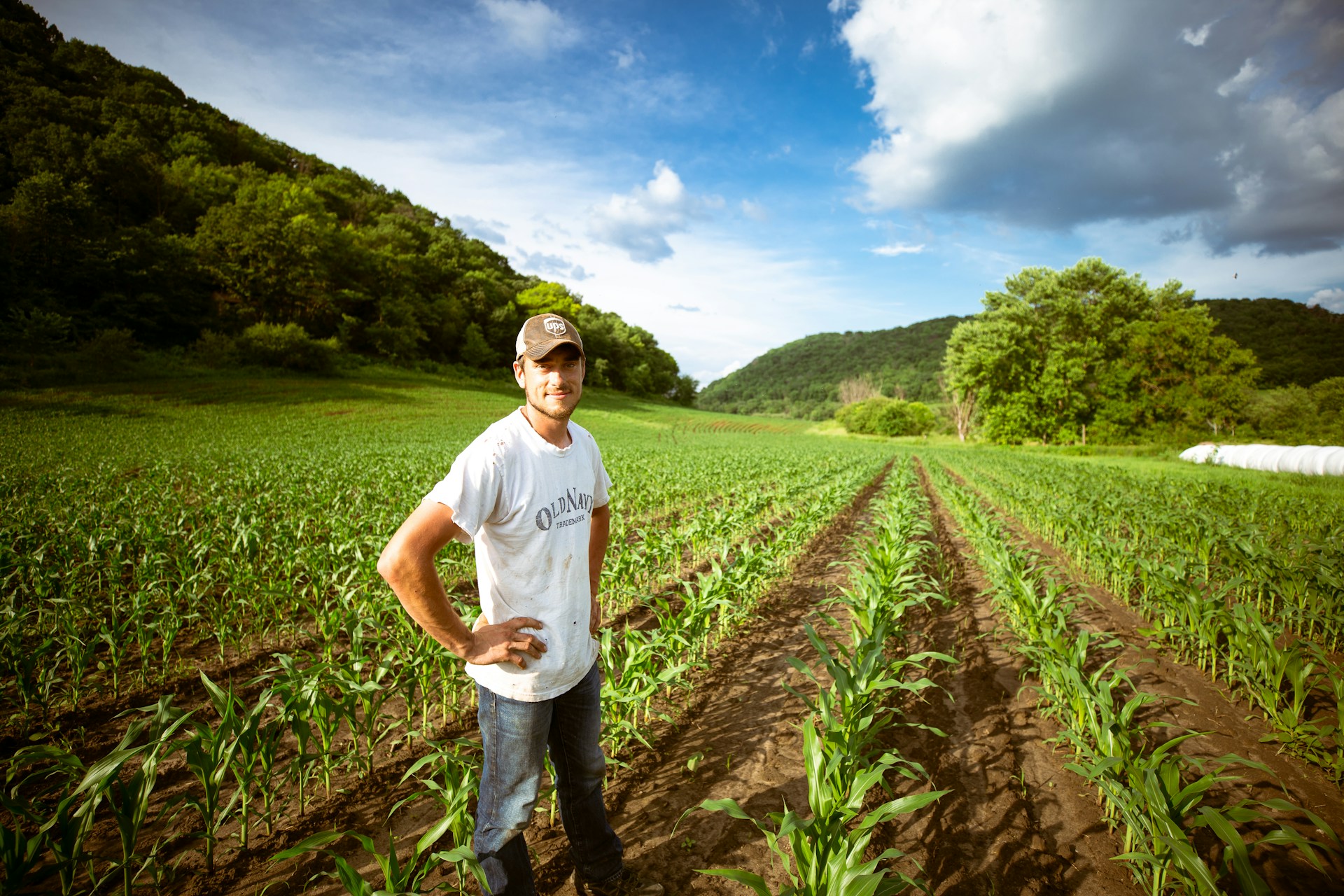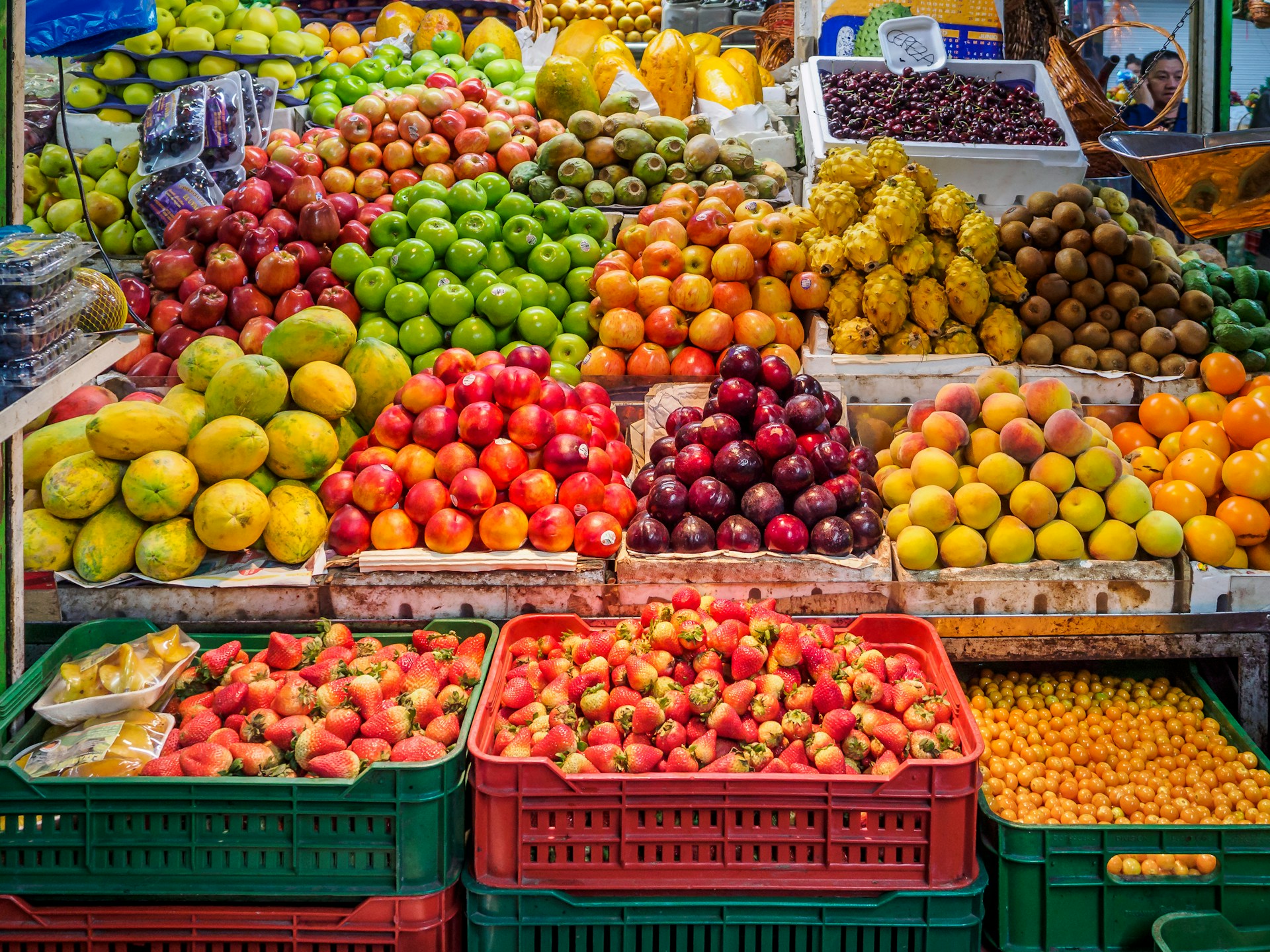Sourcing practices can be the invisible link between a business’ prosperity in the market and its ecological footprint.
For retailers dealing with produce, their supply chains hold an immense level of responsibility.
Recently, there is a significant emphasis on ethical sourcing, primarily due to heightened consumer awareness and preference for sustainability.
Yet, far beyond being a mere marketing strategy, it’s a commitment to change – change in how we respect our natural resources, value our labor force and respond to customer preferences.
In farming or agriculture, the stakes are higher; the effects can be sweeping and long-term regarding food safety, quality, and environmental impact.
This underscores the dire need for these practices to be not just transparent, but also ethical.
Ethical Sourcing Practices For Produce Retailers
1. Choosing Fair Trade Certified Suppliers.
One of the foremost practices in ethical sourcing involves choosing to do business with Fair Trade Certified suppliers.
These suppliers adhere to a strict set of regulations that ensure ethical standards are met in farming and agriculture.
Selecting Fair Trade Certified suppliers is an effective way to ensure that the produce retailers are selling is ethically sourced.
Part of the requirements to get this certification includes adherence to practices that support sustainable farming and the fair treatment of farmers and workers.
A Fair Trade Certification not only signifies stringent quality control, but it also includes humanitarian provisions that prioritize workers’ welfare.
By choosing Fair Trade Certified suppliers, businesses are making a commitment to support equitable wages, sustainable farming practices, and the abolishment of exploitative labor, specifically among children.
Suppliers holding this certification have demonstrated an ongoing commitment to ethical practices, including paying fair wages and maintaining safe working conditions.
They are also monitored and audited regularly by the Fair Trade organization to ensure the continued compliance with these practices.
The Fair Trade Certification goes beyond just being a label; it is an endorsement of a producer’s commitment to meet social, economic, and environmental standards.
Political stability, market access, and economies of scale – usually unattainable for small-scale farmers – are often provided to these suppliers.
This helps level the playing field for the small-scale farmer and makes them competitive in the industry.
Choosing to partner with these suppliers sends a powerful message to consumers that the retailer is focused not only on profits but also in contributing to social justice and environmental sustainability.
Moreover, Fair Trade Certified suppliers ensures that retailers are not complicit in practices that may contribute to social inequality or environmental degradation.
Retailers that choose and sell Fair Trade products help fund community development projects in developing countries, furthering their contribution to positive social impact.
A deepened understanding of and commitment to Fair Trade Certification can give produce retailers a significant ethical advantage in an increasingly conscious consumer market.
Thus, choosing Fair Trade Certified suppliers is not just a move for good PR; it is a strategic decision that falls in line with the ethical sourcing practices for produce retailers.
2. Ensuring farmers receive equitable, living wages.
One of the core tenets of ethical sourcing in produce retail involves ensuring that farmers receive an equitable, living wage for their work.
Produce retailers that prioritize ethical sourcing recognize that a commitment to fair pay forms a crucial part of their sourcing policy.
By committing to fair pay, retailers not only support farming communities, but they also contribute to the health and stability of the supply chain.
Many farmers across the globe, especially those involved in the cultivation of high-demand produce, often work in harsh conditions for meager wages.
Such an unfair system robs farmers of their dignity and results in a cycle of poverty for these critical workers in the food supply chain.
The key to breaking this cycle is ensuring that all farmers receive a living wage, which is a wage that not only covers basic needs like food, clothing, and shelter, but also allows for savings and leisure.
An equitable wage is not just about basic survival; it’s about ensuring a quality of life that goes beyond subsistence.
It’s about ensuring that farmers can afford healthcare, education for their children, and have the ability to plan for their future.
Produce retailers, particularly those with significant buying power, have a responsibility to leverage their influence to ensure these fair wage practices.
However, it’s not enough to simply commit to paying more for produce; it’s also about ensuring these increased payments are passed down to the farmers themselves and not swallowed by middlemen.
This means working closely with suppliers to scrutinize their labour practices and calling for transparency in payment structures.
Ensuring farmers receive equitable, living wages also involves regular auditing of suppliers and strict adherence to contractual agreements.
It’s also about educating consumers on the price of their food and why paying a little extra contributes to a more just and sustainable food system globally.
Ultimately, the commitment to equitable, living wages for farmers is a testament to a retailer’s recognition of the true value of farming and the people behind every piece of produce.
It’s a recognition that ethical sourcing isn’t just good for business, but it’s the right thing to do.
3. Prioritizing Local and Small-Scale Farmers
In the quest for sound ethical sourcing practices, produce retailers must make a commitment towards prioritizing local and small-scale farmers.
This serves to not only foster community development, but also ensures the preservation of diverse farming methods that are tailored to the unique characteristics of different regions.
By granting precedence to these farmers, retailers can contribute significantly to fostering local economic growth and driving sustainability in agriculture.
The benefits of supporting local and small-scale farmers extend beyond economic considerations and delve into the realms of environmental preservation and cultural heritage protection.
Investing in local produce goes a long way in reducing carbon footprint by cutting down on long-haul transportation of goods from distant producer regions.
Moreover, small-scale farmers often employ traditional farming methods that are more sustainable and in harmony with the environment, as opposed to large scale industrial farming practices which are known for their excessive use of pesticides and contribution to environmental degradation.
By prioritizing these farmers, retailers indirectly advocate for the preservation of these eco-friendly farming practices.
The significant role that local and small-scale farmers play in ensuring food security within their communities cannot be overstated.
Local farmers produce food varieties that are uniquely adapted to the local climate and soil conditions, thereby contributing to maintaining biodiversity.
Thus, supporting these farmers encourages the continued production of these local varieties and the preservation of agricultural biodiversity.
Alongside biodiversity preservation, these farmers are often practitioners and custodians of heritage farming techniques, making their support critical in the preservation of cultural heritage.
Despite the apparent benefits, small-scale and local farmers often face multiple challenges including lack of access to markets and financial resources, which need to be addressed by ethical sourcing practices.
Policies should thus be designed and implemented to incorporate these farmers into mainstream markets and to provide them with access to fair and equitable return on their produce.
In the same vein, encouraging consumers to buy locally through education and awareness campaigns can create more demand for products from local, small-scale farmers, further reinforcing their market presence.
Investments should be directed towards building the capacity of these farmers in areas such as organic farming and improved post-harvest practices, thereby increasing the overall quality of their produce.
By ensuring the inclusion of small-scale farmers in procurement processes and recognizing their value, produce retailers would be taking significant strides in the direction of ethical sourcing practices.
4. Removing exploitative child labor in supply chains
Eradicating exploitative child labor from supply chains is a significant step towards implementing ethical sourcing practices for produce retailers.
The agricultural sector is, unfortunately, notorious for child labor, with millions of children worldwide forced into possibly hazardous work environments at a young age.
Produce retailers who purposely choose suppliers that do not engage in such practices are taking a direct stance against these inhumane conditions.
Firstly, retailers can ensure they work with certified Fair Trade suppliers who adhere to strict regulations prohibiting child labor.
Additionally, retailers can take proactive measures by conducting regular audits of their suppliers to ensure the absence of child labor.
In the case of discovering child labor practices, ethically conscious retailers must intervene and immediately cease business relationships with such suppliers until the issue is resolved.
Exploitative child labor does not only refer to forced labor but also includes practices that deprive children of their right to education or expose them to harmful situations.
Therefore, part of the commitment to removing child labor from supply chains inherently means advocating for the rights of children to live normal lives free from exploitation and with access to education.
In some regions, there may not yet be stringent laws protecting children against labor exploitation, hence produce retailers should take it upon themselves to promote ethical labor standards.
Advocating for change can happen on many fronts including lobbying for stricter laws and researching and sharing information about the detrimental effects of child labor.
Produce retailers can form alliances with non-profit organizations, and consumer groups working to combat child labor, harnessing collective power to pressurize suppliers to change their unethical practices.
At the market level, retailers can use their influence to encourage shoppers to make ethical purchasing decisions, thereby creating a situation where suppliers have no option but to change their exploitative practices.
Furthermore, ensuring that suppliers provide adequate wages for adult laborers can help reduce the dependence on low-cost, unethical child labor.
Thus, it is evident that removing exploitative child labor from supply chains is a comprehensive effort that requires a multi-faceted approach.
Only then can produce retailers truly claim to follow ethical sourcing practices.
5. Implementing standards for sustainable farming
For ethical sourcing practices in the produce retail industry, implementing standards for sustainable farming is an important consideration.
Farming practices have a direct impact on the environment and indirectly, on the sustainability of the retail industry as a whole.
Therefore, a strict adherence to farming standards that promote sustainability could ensure that the long-term viability of agriculture is maintained.
These standards could range from avoiding excessive water usage, promoting soil health through organic farming methods, to reducing greenhouse gas emissions.
High adherence to sustainable farming standards can contribute significantly towards ethical sourcing, making it a core component of any produce retailer’s sourcing strategy.
Organizations can work in collaboration with their suppliers to educate and encourage them about the importance and benefits of sustainable farming.
Introducing technologies such as precise irrigation systems, or natural pest management methods, could reduce the environmental footprint of farming operations.
Sustainable farming standards also support the welfare of farmers, since they minimize the exposure to harmful chemicals and pesticides which could pose health risks.
More so, following these standards could help improve the yield and quality of crops, benefitting both the retailers as well as the consumers.
As produce retailers, it becomes our responsibility to verify and validate that our suppliers are indeed following the prescribed standards.
This can be done through frequent audits, and certifications from recognized bodies in the industry.
There is a growing consumer awareness about the importance of sustainable farming, and many are willing to pay a premium for ethically sourced produce.
This provides a unique opportunity for retailers to not only fulfill their social responsibility, but also gain a competitive advantage in the market.
However, it is important to remember that implementing such standards is not a one-time process.
It is an ongoing effort that requires continuous surveillance and adjustments based on advancements in technology, changes in regulations, and shifts in consumer preferences.
As a result, it is crucial that retailers remain vigilant and proactive in upholding their commitment towards ethical sourcing through sustainable farming practices.
The Bottom Line
Long story short, by opting for Fair Trade Certified suppliers, businesses play an integral role in elevating the quality of life for farmers by driving equitable wages.
Highly valuing local and small-scale farmers not only fosters community development but also promotes economic sustainability for those who traditionally get left behind in the agriculture business.
The eradication of exploitative child labor in supply chains underscores an uncompromised commitment to human rights and ethical business standards.
Lastly, the implementation of sustainable farming standards is no casual act; it is a significant stride towards preserving our environment for generations to come.
Therefore, the integration of these business practices is vital not just for commercial success but also for endorsing a more equitable, humane, and sustainable world.




